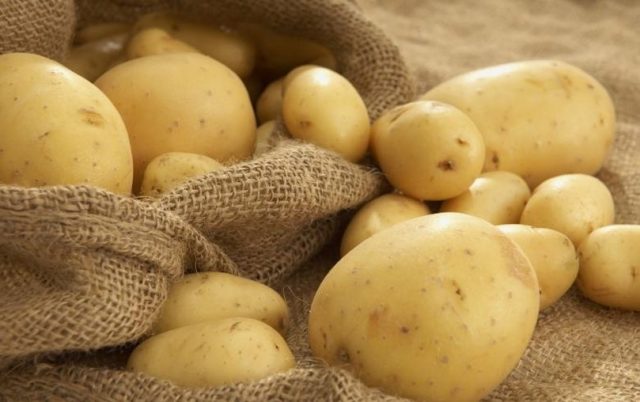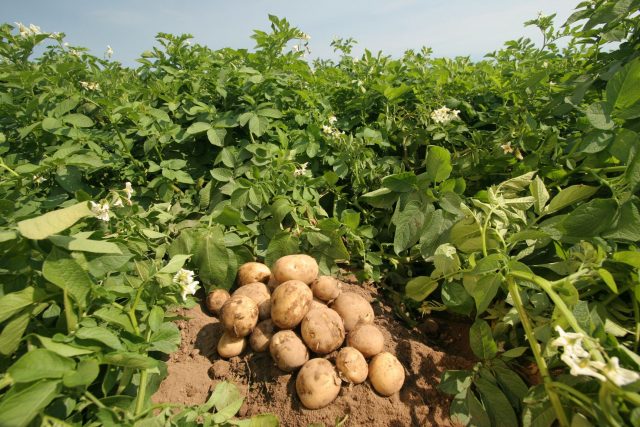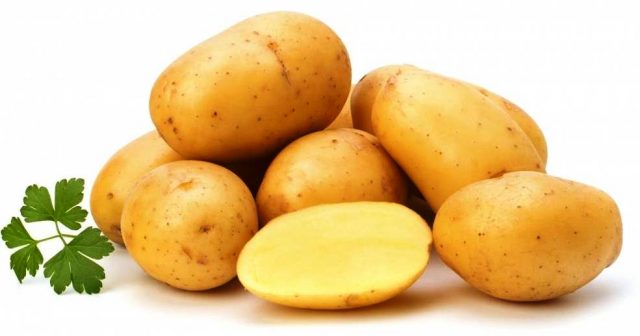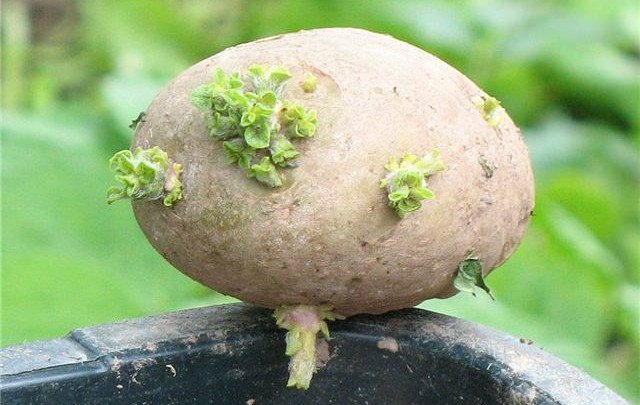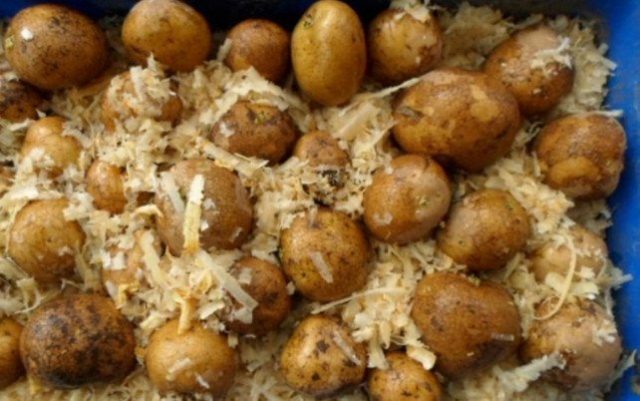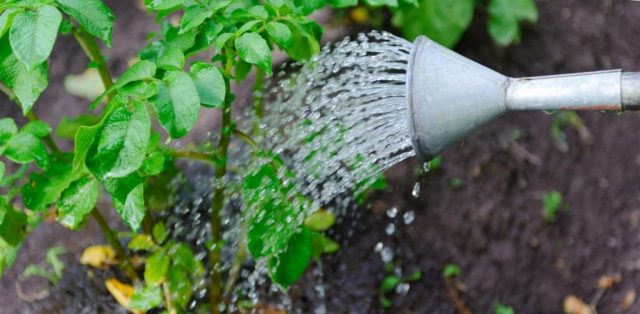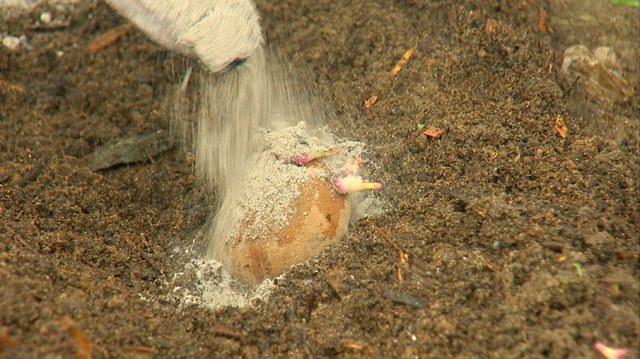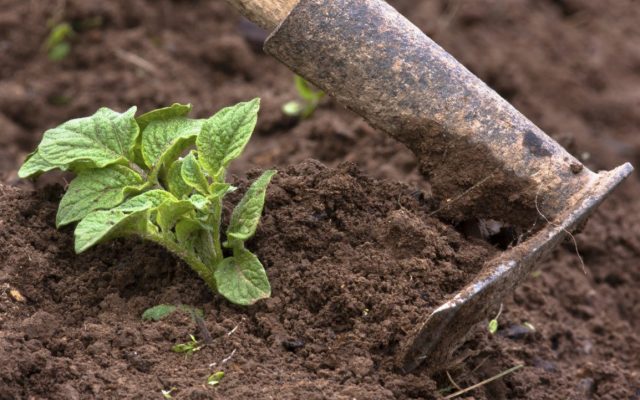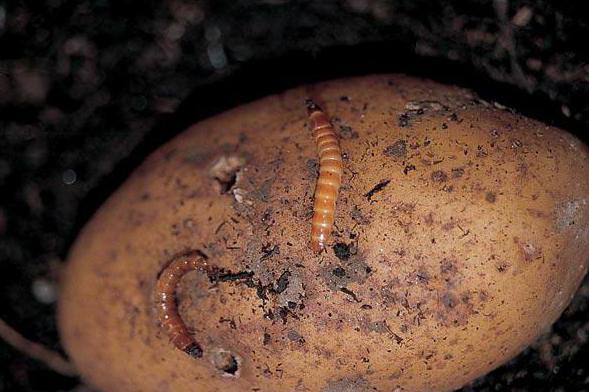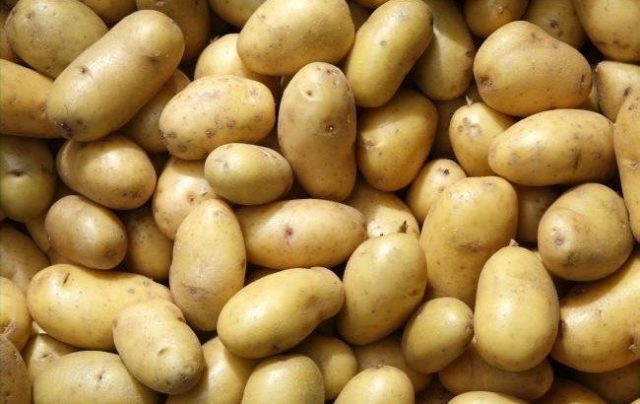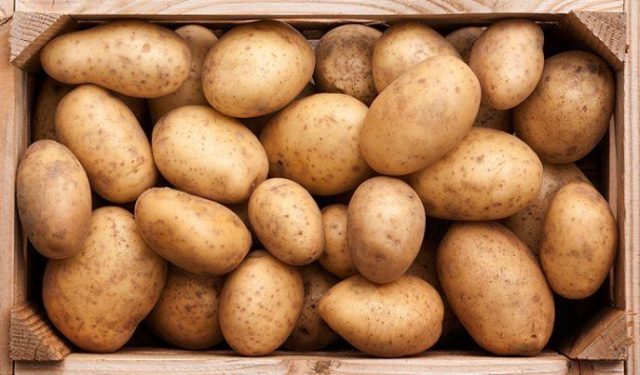Content
Lasunok potatoes have been known not so long ago, but have already managed to fall in love with both professional agricultural technicians and amateur gardeners, primarily due to excellent taste and high yield. The article provides a detailed description of Lasunok potatoes, the rules for planting, care and storage, as well as photos and reviews that allow you to appreciate it.
Characteristics of Lasunok potatoes
Lasunok refers to high-yielding mid-late or late-ripening potato varieties, depending on the region of planting. It has excellent taste, is suitable for preparing various dishes, it is well stored, does not require special care, and is resistant to diseases and pests.
General characteristics of Lasunok potatoes:
- The bush is tall, erect, multi-stemmed. The stem is thick, fleshy. The leaves are dark green, covered with tough villi, which provides protection against the Colorado potato beetle.
- The tubers are large, oval in shape, the flesh is white-yellow, the skin is yellowish, light. The eyes are sparse, set deep, but this does not interfere with germination. In the spring they "wake up" early. The average mass of tubers is 120 - 180 g. Particularly large fruits reach 200 g.
- Flowering - abundant, long, flowers - white with a yellow heart.
- Ripening period - 90 - 120 days, depending on the region of cultivation, care, weather conditions.
- Productivity: on average 10 - 12 tubers per bush, under favorable conditions - up to 15 - 17.
- Keeping quality is average, if the recommended temperature is not observed, the tubers begin to actively germinate.
The variety is recommended for cultivation in the Central, North Caucasian, Far Eastern, Volgo-Vyatka regions of Russia. Due to its high yield, unpretentiousness, disease resistance, it is suitable for large agricultural farms and small garden plots.
From the photo, you can evaluate the characteristics of the Lasunok potato variety.
Taste qualities of potatoes
The potato variety Lasunok, bred by Belarusian breeders, has been known in Russia since 1988. Due to its taste characteristics and versatility, it quickly gained wide distribution and popularity.
The potato has a delicate, creamy taste. At home, it is used for mashed potatoes, pancakes, casseroles, first courses, vegetable stews. On an industrial scale, it is processed into chips, starch, and is included in frozen mixtures.
After heat treatment, the tubers become loose, easily boiled, crumble, but do not lose their attractive appearance and color.
Pros and cons of the Lasunok potato variety
Lasunok potatoes are popular among Russian and Belarusian farmers due to:
- high yield, large size of tubers;
- unpretentiousness, ease of cultivation;
- immunity to phyto-diseases (late blight wilting, black leg, nematode);
- pest resistance (Colorado potato beetle);
- excellent dining qualities.
Disadvantages of the Lasunok variety:
- short dormancy period, tubers begin to sprout early in spring;
- loose structure: when cooked, the potatoes become very crumbly;
- requires good watering, does not tolerate drought well, with insufficient moisture it loses yield.
Planting and caring for Lasunok potatoes
Lasunok potatoes are not picky about agricultural technology; both a novice summer resident and an experienced farmer can get an excellent harvest.
Selection and preparation of the landing site
Lasunok potatoes are undemanding to the quality and composition of the soil. For planting, it is worth choosing flat, light, sufficiently moist, spacious areas.
Organization of the landing site:
- The preparation of the soil for potatoes begins in the fall. The plot is plowed, leveled, fertilized with manure. To replenish nutrients, cereals (oats, rye) or watercress are planted.
- After the snow melts, the plot is plowed again together with the early sprouts of winter crops, weeds removed.
- Immediately before planting, the soil is re-loosened and moistened.
Once every 4 years, it is worth changing the site for planting potatoes, since the Lasunok greatly depletes the soil. It should be placed on lands where cereals and legumes were previously cultivated.
Preparation of planting material
To get a decent harvest, potato tubers need to germinate correctly. 3 - 4 weeks before planting, they are taken out of the winter storage to a warm place. Within 2 - 3 weeks, the roots come to life, strong shoots appear.
Lasunok potatoes tolerate division well. Immediately upon planting, the tuber is cut into 2 or more parts, observing the even distribution of the eyes.
To speed up germination, you can use 2 methods:
- Dry method: baskets or wooden boxes with tubers, laid out in 1 - 2 rows, are brought out in the sun. The potato takes on a greenish tint, the eyes start to grow. It is important to monitor sufficient light distribution, periodically turn the tubers so that the sprouts develop evenly and are strong.
- Wet way: the root crop is covered with a layer of moistened humus or small sawdust. Store at a temperature of about +15 oC. In such conditions, not only strong shoots appear, but also roots; tubers take root better, grow faster after planting in the ground.
Landing rules
Potato tubers are planted in the ground from late April to May, when the soil warms up by at least 10 cm.
Optimal landing pattern:
- distance between rows - 70 - 90 cm;
- between plants - 45 - 50 cm;
- potatoes are placed in holes to a depth of 5 - 7 cm on loamy soils and 10 - 12 - on sandy loam.
Breeders recommend adding a little humus, wood ash when planting, watering with a weak solution of manganese (especially when dividing tubers).
On waterlogged soils, potatoes are planted in "furrows". To do this, a shaft (comb) is raked with a hoe, shovel or garden technique, into which sprouted tubers are dropped.
With this arrangement, the bushes have enough space for growth and development, the optimal level of soil moisture is maintained, the stems and lower leaves have enough sunlight and heat.
Watering and feeding
Lasunok potatoes are undemanding to fertilizing and fertilization, but they need timely watering.
The first soil moistening is carried out 7-10 days after planting, before germination - by the method of light irrigation (using sprinklers or watering cans). If the weather is dry, there is no rain, after the first shoots appear, the potatoes are watered again.
Further moistening is carried out as needed: when the soil dries out, long-term absence of natural precipitation.
Abundant watering is required only during the flowering period. As a rule, water is allowed to flow by gravity along the furrows: this way it soaks the soil with high quality, penetrates deep into the roots.
To improve yield indicators on poor soils, when planting potatoes, a complex mineral fertilizer, humus or urea is added. The next feeding is carried out during the budding period. They bring in Nitrofos, Diammofosku, Potassium Monofsfat - to saturate the earth with phosphorus and potassium.
Loosening and weeding
Loosening and weeding of potatoes is performed several times per season, as needed, most often after watering.
Swallowtail grows best in soft, crumbly soil. To obtain a good harvest, the tubers and roots need oxygen supply. The first loosening of potatoes is carried out 10 days after planting, simultaneously removing the weeds that have appeared.
If, after watering, a hard crust forms on the ground that prevents normal air circulation, it is broken with a hoe. At the same time, do not forget that the Lasunok potatoes also require sufficient moisture.
To find a compromise, mulching the site with straw or sawdust helps. The mulch is poured between the grooves after the first hilling of the potatoes. This cover retains moisture while preventing weed growth.
Hilling
The first hilling is carried out 2 - 3 weeks after germination, when young bushes reach 10 - 15 cm in height. To each plant from all sides rake the earth from the aisle, simultaneously loosening the soil and removing weeds.
After another 3 - 4 weeks, the hilling of the potatoes is repeated. The furrow should be about 10-15 cm deep.
Diseases and pests
The Lasunok variety is distinguished by high immunity. It is immune to viral, fungal infections - subject to the irrigation regime, timely removal of weeds, deep digging of the site in autumn and spring.
Only a wireworm can cause significant harm to tubers.
Preventive measures to combat wireworm and preserve the crop:
- Setting the traps one week before planting: Fill plastic cups or bottles with potato peels and bury them in the ground. After 2 - 3 days, the trap along with the larvae is destroyed, if necessary, a new one is installed.
- Planting at the edge of the field of legumes (beans, peas, beans) or mustard.
- Putting eggshells, onion husks, wood ash, mustard powder into the hole when planting potatoes.
- Compliance with the crop rotation regime.
- Timely weeding. The wheatgrass weed is a favorite habitat for wireworms.
In addition, in autumn, you should not leave heaps of unharvested tops or grass on a potato field: pests hibernate in them.
Potato yield
With favorable agricultural technology, the swallowtail gives a rich harvest, without requiring the cost of fertilizing and treating pests.
With sufficient watering, loosening, timely removal of weeds, up to 50 - 60 t / ha of selected potatoes can be harvested. Each bush gives an average of 10 - 12 large tubers weighing up to 200 g.
The indicator largely depends on the quality of the planting material. For amateur gardeners, who leave seeds from the same bushes from year to year, the yield of the Lasunok variety decreases over time, the tubers become smaller, their number decreases.
Harvesting and storage
Digging of Lasunok potatoes is carried out from the end of August, when the foliage and stems begin to dry out. Before being sent for storage, the tubers are dried in the open air for several hours. Then they sort out, clean the dirt, discard the damaged roots.
Lasunok potatoes are packed in wooden boxes, boxes, nets, sent to the cellar, basement, warehouse.Optimum storage temperature from -1 to +2 oC, with air humidity not exceeding 80%. The planting material selected for the next year is placed separately from the main crop.
Observance of optimal conditions helps to keep potatoes fresh for up to 6 - 7 months.
Conclusion
Lasunok potatoes are unpretentious in cultivation, do not require additional processing from pests and excessive feeding, have consistently high yield rates, and are well stored. In addition, it has excellent taste and is suitable for any dish. The Lasunok variety occupies a worthy place in the plots of amateur gardeners, breeders, professional farmers.
